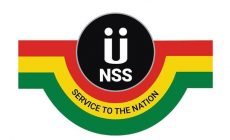The maiden conference, which was held under the theme ‘Strengthening NSS Database for Effective Deployment’, migrates all tertiary institutions across the country onto a database of students who are eligible for service.
It was part of the efforts by management of the NSS to bring to the attention of the various tertiary institutions, the mandate of the scheme, the process of registration, deployment of national service personnel, and the role of the institutions as stakeholders before, during and after the process of deployment.
Also present at the conference were all regional directors of the scheme and a number of representatives from private and public accredited tertiary institutions.
The event was held at the Executive Conference Centre of GIMPA, Accra, on Friday, February 9, 2018.
The new system will see the NSS become integrated into the National Identification Authority’s database when it comes on board.
Also, the database of all the tertiary institutions in the country will be linked to the new NSS database that will be built.
The new National Service Personnel letter will have a barcode and a QR code, which can be scanned to verify the authenticity of the National Service Personnel appointment letters, which will be available to the user agencies and the NSS.
This feature has been added to the new scheme to prevent people who are not qualified from doing the service.
Acting executive director for the NSS, Mustapha Ussif stated that, “The stakeholders’ conference was part of efforts by management to bring to the attention of the various tertiary institutions the mandate of the scheme, the process of registration, deployment of national service personnel and the role of the institutions as stakeholders, before, during and after the process of deployment.”
He added that, “The scheme is here to deliberate on measures instituted to strengthen our database and expected roles towards achieving our set objectives. It is our hope that this event will afford us an opportunity to frankly exchange ideas on how to improve on the scheme’s databases for efficient posting”.
In an interview with the media after the stakeholders’ conference, Mustapha Ussif explained that, “As part of the processes leading to the deployment for the 2018/19 service year, the NSS is putting in place a database to strengthen the process of deployment to make it very efficient and effective, and also to reduce impersonation during the redeployment process.
“We are engaging all the stakeholders, that is the tertiary institutions who provide us with the list of National Service Personnel, to be deployed every year. So we are engaging them to have an effective deployment this year”.
He also mentioned that the new scheme will prevent the long queues National Service Personnel go through during registration process at the regional and district offices.
“The NSS has linked it database to the central database system so most of the security checks that we have to do manually, that is crosschecking of National ID and personality, will be no more as the system has been hooked to the central database system. At the point of enrolment, student will use their national ID and other identifications.
“This year, the student will have to get any of the national IDs before they can be enrolled. The NSS is going paperless in the enrolment and deployment process,” he added.
Dr Kingsley Nyarko, who represented the board at the function, also said, “The database of the scheme is thus relevant in terms of planning, making choices and taking decisions to benefit the scheme and other users of its services. However, it is not enough to have a database; what is important and critical is to have one that ensures and guarantees effective and reliable service delivery and user satisfaction”.
He further added that, “The online system which is being introduced by the scheme will help reduce cost, minimise human intervention, human errors and the inconsistencies in the data reporting and analysis.”
This approach will go a long way in reducing delays and possible errors which will make data readily accessible to the National Service Secretariat for effective personnel registration and posting.
The new system, in effect, will enable the scheme check challenges such us late submission of class lists by institutions, multiple and wrong submissions of names, wrong submissions of ID numbers, and also check the defaulters of service.
NSS goes paperless with new system
- Posted on
- Comment

A one-day stakeholders’ conference, organised by the management of the Ghana National Service Scheme (NSS), has been held in Accra.
By Herbert BOAKYE YIADOM, Accra










 (Selorm) |
(Selorm) |  (Nana Kwesi)
(Nana Kwesi)